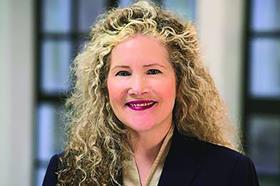How do you avoid the dream of building your own specialist firm from becoming a nightmare? Joanna Goodman talks to solicitors who know
The low down
Well-established law firms are worried about succession, given a decline in the number of solicitors who see partnership as ‘the goal’. Yet one group remains keen on ownership. There is, it seems, no shortage of solicitors willing to take the training and lessons learned at large commercial firms, and apply them in their own, much smaller, specialist outfits. It’s not easy though. The regulatory burden is heavy and it can be difficult to compete on salary. And necessary investments in technology can be an existential matter, with little room for mistakes. So why do it? Such ‘boutique’ firms attract lawyers with an entrepreneurial spirit. These principals have autonomy and flexibility, and can and do provide clients with a satisfyingly personal service.
The decline in the number of small, traditional high street firms is an established trend. But ‘smaller’ is not bad news for all. Many boutique law firms are thriving. Specialist or ‘boutique’ firms focus on one or more areas of law, such as employment, intellectual property or immigration, or specific industry sectors, such as real estate, construction, media and entertainment.
The shift toward boutique firms reflects the rise in the number of alternative business structures (ABSs) which allow founders and leaders greater flexibility. This in turn enables boutique firms to achieve prominence in niche markets as a viable alternative to larger, full-service firms.
But independence comes at a price: boutiques have the same compliance burden as larger firms and their owners have to shoulder the responsibilities that come with building, leading and growing a business, as well as managing a legal practice. It is not for the faint-hearted.
Origins
Boutique law firms are generally founded by experienced lawyers who, for professional or personal reasons, decided to leave larger firms and start their own business. For Clare Murray, who founded CM Murray almost 20 years ago, it was both.
After a long sabbatical following a period of ill health, she thought carefully about how she wanted to develop her career. ‘I wanted to create something that was entrepreneurial, internationally focused and flexible, although the flexibility never happened because a boutique firm is not an easy option – it requires a huge amount of self-motivation and focus,’ she says.
CM Murray advises on partnership law; clients include professional services firms and their partners, senior executives and founders, and multinational companies with UK operations. ‘I wanted,’ Murray says, ‘to create a place where the areas of law that we love and that are important to our clients are at the heart of everything we do.’
A few years down the line, her law firm clients were looking for additional services. So she extended the practice to include partnership, constitutional and law firm M&A and, more recently, SRA and professional services regulation and professional discipline. The culture and ethos are predicated on collaboration and creativity. ‘Most important was we wanted to be really collaborative. What I’ve seen in a lot of partnership disputes, where we’ve advised firms and partners, is that one of the main underlying problems is the hyper-competitiveness in law firms, so we have tried to set up systems which are focused on collaboration.’
Similarly, when John Wallace founded construction boutique Ridgemont 10 years ago, his strategy was predicated on specialism and culture, which played into the structure of the business. Wallace was keen to get away from an emphasis on billable hours. ‘In Big Law, associates are incentivised to bill as many hours as possible to maximise profitability, but the most important thing should be great legal advice,’ he says.

Consequently, Ridgemont operates a horizontal business model. ‘We don’t have a partnership structure. I own the business and everyone else is on a salary. We work cost-effectively, although we compete on high-quality legal advice rather than price,’ he adds. Ridgemont, which advises national developers and contractors, has 10 lawyers and is currently recruiting.
When Florence Brocklesby founded workplace and dispute resolution boutique Bellevue Law in 2014 she wanted to return to practising law after having children, and she was determined to build a business around flexible working.
Originally, this was to enable her and a growing number of colleagues to manage work around family life, but Brocklesby’s values are about a lot more than working from home. Bellevue Law was the first UK law firm to be accredited by the Good Business Charter in 2020 and in 2024 it became a certified B Corp, demonstrating its commitment to balancing profit and purpose.
As Bellevue Law has always had a hybrid model, it is a challenge to build and maintain a collegiate culture as the firm grows. It currently has 30 lawyers, 90% of whom are women, and recently moved to new offices in London’s Farringdon. Like Wallace, Brocklesby wanted to reward lawyers fairly without setting targets, so Bellevue Law operates a consultancy model, whereby lawyers are paid a percentage of their earnings.
When Adam Merali founded real estate boutique Merali Beedle, the consultancy model was the obvious structure for his start-up. ‘Although it is possible to raise money in London, the second you’re in that situation you have shareholders to please who want to see growth in capital value or dividends, which puts pressure on financial metrics,’ he says. ‘And if the firm is owned by private equity, they call the shots, and there is always the risk that they will prioritise profit over service delivery.’
Merali and his co-founder Nico Beedle realised that the consultancy model was the obvious way to grow the business, and they structured it to build collegiality rather than competition. Merali explains: ‘If you do work for your client, you take 75% of the fees; if you are referred work by someone else in the firm, you pay them a referral fee of 15% so you get 60%. We don’t enforce the referral fee – it’s optional. But it helps our lawyers grow their business. Not everyone who joined us had a big client base at the outset, so we would help them out with referrals, and not everyone charges a referral fee.’
Tech talk
Boutique firms face a unique dilemma when it comes to tech. While they are constrained by their size and budget, being agile and entrepreneurial they are willing to try out new tools.
CM Murray founder Clare Murray (pictured) explains that boutique firm owners need to see a return on every tech investment. Furthermore, most legal tech vendors tailor their products to bigger firms. CM Murray recently rolled out its first new practice management system since it launched nearly 20 years ago. ‘It has been something of a baptism of fire, but we are optimistic that it will help us to drive efficiencies, streamline processes and free up our team members to do the things they love and do best for our clients,’ says Murray.

Bellevue Law has also grown sufficiently to require a new practice management system, and strong IT support, and as a litigation firm it also uses e-disclosure software. ‘We set high standards for ourselves and our suppliers, and our lawyers don’t want tech that doesn’t work,’ explains founder Florence Brocklesby. ‘We are deliberately medium-term adopters. We don’t need to be tech pioneers – our clients come to us for a bespoke service.’
On the other hand, because boutique firms are small, agile and entrepreneurial, it is relatively easy for them to experiment with emerging tech and generative AI (GenAI). Tools like ChatGPT and Microsoft Copilot are affordable and can produce quick, creative results. ‘We use Westlaw AI and Microsoft Copilot as our internal technical and operational support,’ says Murray, recounting that CM Murray recently used Copilot to write event invitations in the style of marketing guru Rory Sutherland. This required original thinking and the right prompt, but it was an excellent, cost-effective way of creating a compelling campaign.
Briffa, partner Éamon Chawke explains, is a technical business and therefore has been quick to add AI to its tech stack – having moved everything into the cloud. Both its practice management system (Clio) and its document management system (NetDocuments) include GenAI features and specialist IP software. This includes Corsearch’s AI-powered trade mark and brand protection platform and Simmons & Simmons’ Rocketeer, which uses AI to compare goods and services and to assess the scope of trade mark conflicts.
Second generation
Briffa was founded in 1995 and focused on making IP accessible to small businesses. You could call Briffa a second-generation boutique which has been reimagined by its joint owners Éamon Chawke and William Miles, who acquired the firm in 2019 via a management buyout, with the original founder, Margaret Briffa, bowing out in 2022.
Chawke explains that when he and Miles took over, the firm had been ‘run as a… start-up for 20 years’. Chawke and Miles took the opportunity to take what was great about the firm – its clients, its culture, its reputation and its people – and create a new version. Innovations included opening an office in Dublin so that they could continue providing an EU service post-Brexit, as well as building their client base in Ireland.

The total headcount is 24, across three countries, with the head office in London, a smaller office in Dublin and a dedicated support team in South Africa – outsourced because they struggled to retain admin staff in London.
Chawke and Miles changed the business model when they took over the firm. ‘We try to be transparent on fees. We work with a lot of consultants, and one of the key things is giving clients agency when it comes to pricing,’ Chawke explains. ‘When we took over the business the salary bill was our biggest cost, but people would hit a ceiling and leave. We wanted to make remuneration meritocratic. So we start people on a base salary, and then after a year we pay a guaranteed fixed percentage of what you’ve billed in the previous year. This incentivises people to think like partners.
‘We want you to build the business… Although our lawyers are paid based on their performance… we give unlimited leave, let people work flexibly, we respect the fact that people have lives. The way we’ve structured the business has resulted in people staying a lot longer.’
Hiring for growth
CM Murray employs 36 professionals, 25 of whom are legal professionals, and the firm is still growing. ‘Strategic growth is very important to succeed, though I didn’t fully realise that until about 10 years in, when I participated in the Goldman Sachs 10,000 small businesses programme, which is aligned with a UK government initiative to help smaller businesses.’
Since then the firm has grown both through lateral hires, which has enabled the firm to expand its specialisms, and by taking on trainees. ‘It’s important to have that young talent pipeline,’ Murray says. She stresses the importance of diversity of experience – and thinking – even in a small business, as well as fostering a culture where people can try new ideas and ‘fail fast’.
Quite surprisingly, given its horizontal consultancy model, some Merali Beedle consultants have established their own teams which include trainees, who work across different practice areas. ‘When you don’t write down all the rules, people build relationships,’ explains Merali, adding that trainees are encouraged to spend time with other lawyers in the firm, as part of demonstrating their value. ‘A senior lawyer doesn’t need to use a trainee, so the pressure is on. That makes trainees work harder, and gets trainees going and pitching for work internally.’
Merali Beedle has been established for less than 10 years and now has 75 fee-earners, with four more joining in the next three months. ‘We never wanted to be the biggest firm because we want to focus on the calibre of lawyers. While real estate is our biggest practice area, corporate is catching up quickly and there is a lot of cross-referencing between practice areas,’ says Merali. The Merali Beedle business model appeals to former City lawyers whose circumstances mean that they no longer fit the traditional law firm model.
For Chawke at Briffa, growth is predicated on people and technology. ‘We’re still in our tech enablement phase and while previously we might have measured growth by headcount, looking ahead, growth might not look physical in that way, might not be about headcount or physical office space, as the way we use tech in general and GenAI in particular will change service delivery.’
Ridgemont differentiates itself by specialist expertise and experience rather than growth. Wallace does not want to grow the firm beyond about 20 or 30 lawyers – he appreciates the value of establishing a niche practice in a highly specialised area and does not want to build a firm like the one he left. ‘In construction, we have our own way of resolving disputes, specialist legislation and our own language. This means there’s a smaller recruitment pool, but no other boutique law firm specialises in construction.’ The firm attracts exactly the type of lawyers it is looking for – experienced construction experts who do not want to work in Big Law.
While remote and agile working has reduced barriers to entry when it comes to setting up and running a successful boutique firm, the increased regulatory demands are proportionately most burdensome on start-ups and smaller firms.
Merali sees the regulatory burden on lawyers as a barrier to entry. His advice to anyone considering opening a new law firm would be to ‘start with at least four partners and share the regulatory burden until you can afford to hire someone to manage regulation and compliance’.
On the other hand, Brocklesby at Bellevue Law believes: ‘Compliance should be a burden if it’s meaningful… I hope that regulation gives clients a degree of comfort.’ However, she acknowledges: ‘The smaller the firm, the higher the burden and the buck stops with me.’
Like Brocklesby, Wallace at Ridgemont is responsible for compliance. ‘You end up doing that after a day’s work,’ he says.

Because CM Murray advises professional services firms, regulation is one specialism. ‘We have three partners who advise on regulatory and professional discipline, and that gives us confidence and real insight,’ says Murray. ‘Our practice covers partnership law and employment law, and the regulatory and professional discipline is the golden thread that runs through everything we do. But we can’t be complacent and try to ensure we have policies, regular training, and that we discuss SRA standards and regulatory issues in team meetings.’
What advice would these successful boutique owners give to someone starting out today? Merali would advise new founders to be well-capitalised from the outset. As a real estate lawyer, he works closely with banks and initially he struggled to get on the legal panels of big banks that did not work with new market entrants. This meant the firm could not represent both sides of a property transaction, so it took longer to win that business and become profitable.
Brocklesby is more upbeat. ‘I would encourage anyone starting today to be clear about their purpose and their priorities. Stick to your values and your principles, even if it means referring clients away rather than overburdening the team as it helps you retain good lawyers. I am fussy about who I hire and we have a team that feels committed to the firm. And we try to offer a high-quality environment.’
For Chawke at Briffa, the critical success factor is human. ‘Get the right business partner,’ he advises. ‘Find someone with the same interests, ambition and drive as you, who has similar values but complementary skillsets.’
For Wallace at Ridgemont, the key is to dig a niche in an existing market – and talk to the clients. ‘Specialising is key, and enables you to compete at a higher level,’ he says. But ultimately it is about relationships, he concludes: ‘There is no substitute for getting out and meeting clients. When they see you they open up about the issues in their business and work comes out of that. Keep the human in law, use AI in the background but write your own emails.’
Joanna Goodman is a freelance journalist
































1 Reader's comment